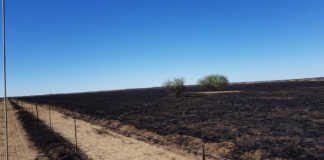Cases of the controlled disease have also been confirmed on farms in the Cradock and Middelburg districts. But, said Dr Pieter Prinsloo, chairperson of the Eastern Cape branch of the Red Meat Producers’ Organisation (RPO), this is just the tip of the iceberg.
He believes that the disease has spread throughout the province, but that, because of unfair legislation, many farmers aren’t reporting the presence of Johne’s disease on their farms. It occurs mainly in sheep, but can also affect cattle. It attacks the intestinal system and results in chronic diarrhoea with thickening of intestines and mal-absorption that results in emaciation and ultimately in death, explained Dr Jane Pistorius, manager of veterinary services in the western region of the Eastern Cape.
“Because of a long incubation period and because none of the tests are particularly sensitive, diagnosis in individual animals is unreliable, with the result that control is difficult. Once a flock is considered positive it is almost impossible to eradicate,” she added. According to Pistorius, the meat is safe for human consumption and wouldn’t hamper meat exports. “Stock may only leave the farm to be taken to the abattoir.”
According to Prinsloo, the current legislation is very unfair to the producer and the RPO has been trying unsuccessfully for many years to have it amended. “When a farmer vaccinates stock against the disease, this immediately places the farm under quarantine and no production animal, such as rams, may be sold. The animals can then only be marketed for slaughter,” he explained, adding that this leads to huge financial losses.”
“The fact that a farmer isn’t allowed to sell any production animals, even if only one or two of the animals have the disease, often leads to farmers not vaccinating stock and not reporting the disease,” said Prinsloo. The livestock industry wants to create a structure whereby buyers can make informed choices on whether they want to buy stock that’s free from the disease even if it came from the same farm where stock tested positive, he explained.











